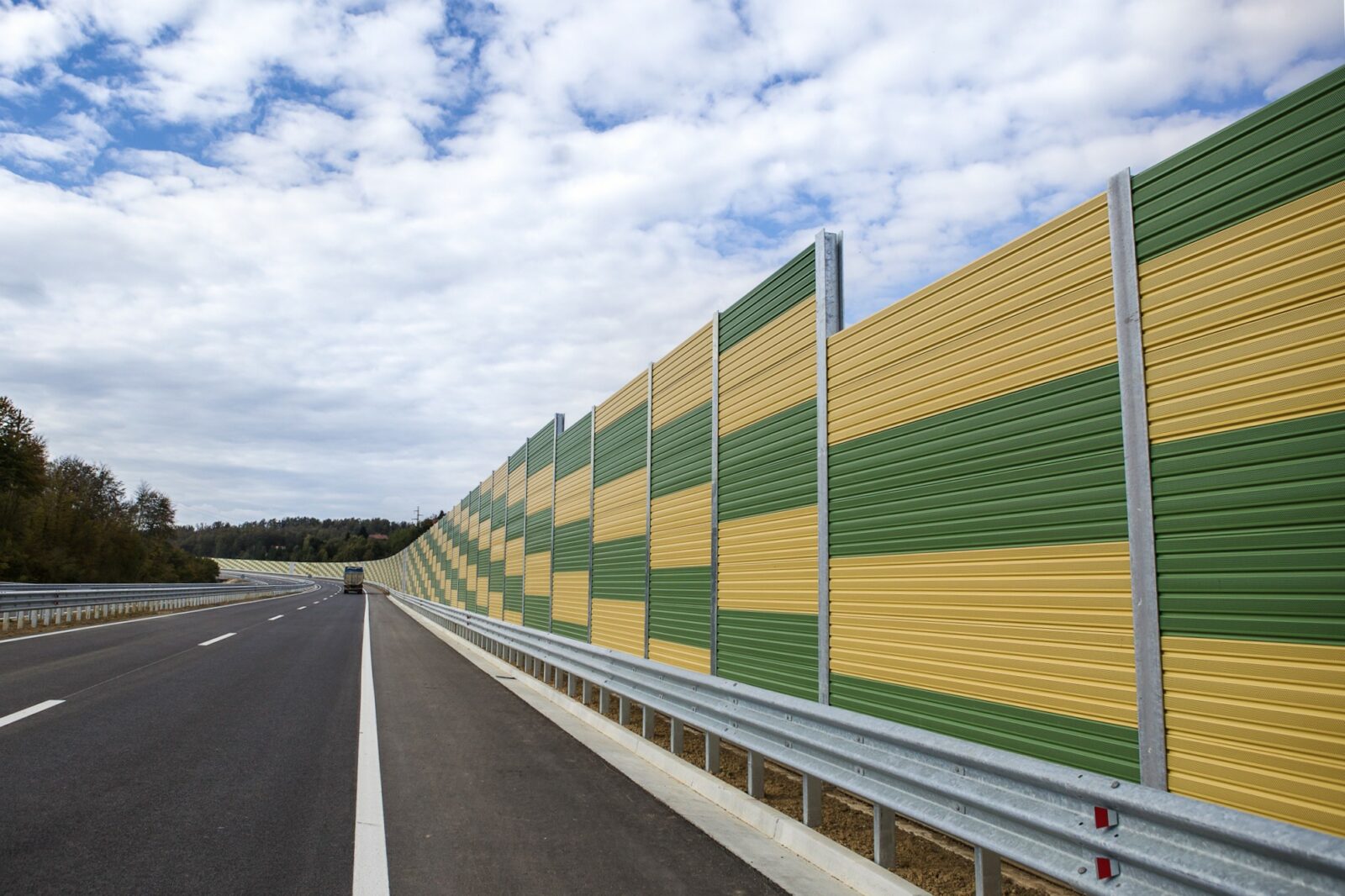Are you looking to reduce the noise pollution on your construction site? Noise pollution can be a significant problem on construction sites, and it can cause a range of issues for workers and nearby residents alike. One effective solution to this problem is to use noise barrier sheets. These sheets can help to block out unwanted noise from outside sources and contain or isolate sound within a specific area.
Construction sound barrier comes in different varieties, each with its unique properties and benefits. Choosing the right barrier sheet for your construction project is crucial to ensure maximum effectiveness.
Fundamentals of Noise Barrier Design
When designing a noise barrier for construction projects, there are a few key considerations to keep in mind. In this section, we will discuss the material selection, barrier thickness and density, and structural design considerations that are important to create an effective noise barrier sheet.
● Material Selection
The material selection for a noise barrier is crucial to its effectiveness. The material should be able to absorb sound waves and reduce the amount of noise that passes through it. Some common materials used for noise barriers include concrete, steel, and composite materials. When selecting a material, it is important to consider its sound-absorbing properties, durability, and cost.
● Barrier Thickness and Density
The thickness and density of the barrier are also important factors to consider. A thin barrier may not be effective in blocking out noise, while a barrier that is too thick may be too heavy and difficult to install. The density of the barrier is also important, as a denser barrier will absorb more sound waves. A thicker and denser barrier can also reduce the amount of noise that reflects towards the source.
● Structural Design Considerations
The structural design of the noise barrier is also important. The barrier should be designed to withstand wind, rain, and other environmental factors. The design should also take into account the location of the barrier, as barriers located near highways or other sources of noise may need to be designed differently than those located in quieter areas.
Installation Techniques
When it comes to installing noise barrier sheets, there are a few techniques that can help ensure effective soundproofing.
Firstly, consider the placement of the noise barrier sheets. They can be installed on walls, ceilings, or floors depending on the source of the noise. Make sure that the noise barrier sheets are placed between the noise source and the receiver to effectively block the noise.
Another important factor to consider when installing noise barrier sheets is the type of material used. High-density, sound-absorbing materials are ideal for constructing effective noise barriers. Additionally, the use of multiple layers of noise barrier sheets can help to further reduce noise levels.
It is also important to ensure that the noise barrier sheets are installed correctly. This involves ensuring that there are no gaps or holes in the barrier that could allow noise to leak through. Proper sealing techniques should be used to ensure airtight installation.
Maintenance for Longevity
Regular maintenance is crucial to ensure that noise barrier sheets remain effective in the long term. This involves inspecting the barrier sheets regularly for signs of wear and tear and addressing any issues promptly.
One common issue with noise barrier sheets is the accumulation of dirt and debris, which can reduce their effectiveness. Regular cleaning can help to prevent this issue. Simply wiping down the noise barrier sheets with a damp cloth can help to remove any dirt or debris that has accumulated.
In addition to regular cleaning, it is important to address any damage to the noise barrier sheets promptly. This can involve repairing any holes or tears in the sheets or replacing damaged sheets entirely. By addressing these issues promptly, you can help to ensure that your noise barrier sheets remain effective in the long term.
Following these installation and maintenance techniques, you can ensure that your noise barrier sheets are effective in blocking noise and promoting productivity on your construction site. Additionally, using cost-effective materials and installation techniques can help to keep costs down while still achieving effective soundproofing.
Impact on the Surrounding Environment
When selecting a noise barrier sheet for your construction project, it is important to consider its impact on the surrounding environment. Noise pollution can be harmful to both wildlife and humans, so it is important to choose a barrier that effectively reduces noise levels while also being environmentally friendly.
Rubber, vinyl, and foam are common materials used in noise barrier sheets. Rubber and vinyl are both waterproof and durable, making them ideal for outdoor use. Foam is lightweight and easy to install, making it a popular choice for DIY enthusiasts.
Wood is also a popular material for noise barriers, but it is important to choose sustainably sourced wood to minimise the environmental impact.
Safety and Health Issues
In addition to environmental considerations, it is important to consider safety and health issues when selecting a noise barrier sheet. Construction sites can be dangerous places, and noise barriers can help protect workers and residents from noise pollution.
When selecting a noise barrier sheet, look for one that has been tested and certified to meet safety standards. Some noise barrier sheets are designed to be fire-resistant, which can help prevent fires from spreading on construction sites.
In summary, when selecting a noise barrier sheet for your construction project, consider its impact on the surrounding environment and its safety and health implications. Choose a material that is effective at reducing noise levels while also being environmentally friendly and safe for workers and residents.
Innovations in Soundproofing Materials
As an acoustic engineer, you know that isolating sound is not always easy. Airborne and vibration noise can be challenging to control in construction projects. However, with advanced noise barrier technologies, it is now possible to reduce noise levels significantly.
One of the most effective soundproofing materials is acoustic foam panels. These panels are made of open-cell foam and are commonly used in recording studios. They are effective in reducing airborne noise and can be installed easily. Mass-loaded vinyl is another material that can be used to isolate sound. It is a heavy, flexible material that is ideal for use in drywall.
Fiberglass is also a popular choice for soundproofing. It is a lightweight material that can reduce noise levels by absorbing sound waves. However, fibreglass can be affected by moisture, which can reduce its effectiveness. That’s why it’s important to use high-quality sound barrier products that are designed to withstand moisture.
Custom Solutions for Unique Challenges
Every construction project is unique, and the challenges that come with it can be complex. That’s why it’s important to work with a company that offers custom solutions for your specific needs. Hebei Jinbiao is a company that offers a range of noise barrier and fencing products that can be tailored to your requirements.
Their high-quality sound barrier products are designed to reduce noise levels significantly. They offer dedicated assistance to help you choose the right product for your project. Whether you need a temporary or permanent solution, Hebei Jinbiao can provide you with the right product to meet your needs.
In addition to its noise barrier products, Hebei Jinbiao also offers a range of fencing products that can be used to reduce noise levels. Their products are designed to be durable and long-lasting, even in harsh weather conditions. With their custom solutions and high-quality products, Hebei Jinbiao is a company that can help you achieve your noise reduction goals.







